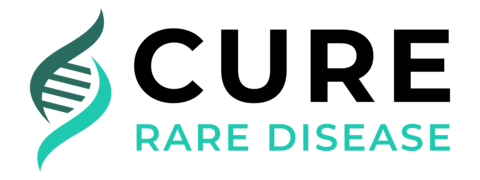Cure Rare Disease Welcomes New Scientific and Strategic Leaders to Advance Therapies for Ultra-Rare Conditions
Cure Rare Disease Welcomes New Scientific and Strategic Leaders to Advance Therapies for Ultra-Rare Conditions
WOODBRIDGE, Conn.--(BUSINESS WIRE)--Cure Rare Disease (CRD), a clinical-stage nonprofit biotechnology organization developing genetic therapies for ultra-rare conditions, is proud to announce the appointment of Keith Sutton, PhD, as Chief Science Officer and the addition of Michelle Werner to its Board of Directors. These strategic additions bring deep scientific expertise and seasoned biopharmaceutical leadership to CRD as the organization continues to advance therapeutic development for rare disease patients.
“We are thrilled to welcome Keith and Michelle to the Cure Rare Disease team,” said Rich Horgan, founder and CEO of Cure Rare Disease. “Keith brings a unique blend of academic experience and industry translation that will enhance our development efforts as we advance programs toward the clinic. Michelle’s leadership in both R&D and commercialization, paired with her personal commitment to the rare disease community, will be invaluable as we continue scaling our impact. Their combined experience strengthens our ability to bring safe and effective treatments to patients who urgently need them.”
Keith Sutton, Ph.D., Chief Science Officer
Keith Sutton joins CRD as a seasoned translational scientist, with experience working in biotechnology, CRO, and academic organizations. Prior to translational science, during his academic career he worked at a range of institutions across the UK, USA, and Australia. He has contributed to the development of a range of cell, gene, and immunomodulatory therapeutics.
Before joining CRD, Keith was Pre-Clinical Director at Resolution Therapeutics, a clinical stage biotech pioneering the use of regenerative macrophage therapy in inflammatory and fibrotic diseases. He was also previously a Principal Scientific Advisor at Charles River Laboratories where he worked—from concept through execution—to support the delivery of a number of programs. It was here that he grew his commitment to supporting rare disease drug development.
Keith holds a BSc (Hons) in Immunology and PhD in Virology from the University of Edinburgh.
Michelle C. Werner, MBA
Michelle C. Werner, CEO of Alltrna and CEO-Partner at Flagship Pioneering brings more than 20 years of experience to the CRD Board as a pharmaceutical executive, spanning commercial and research & development (R&D) responsibilities. Alltrna is a private biotechnology company pioneering tRNA disease therapeutics.
Prior to Alltrna, she served in various executive leadership roles at Novartis, AstraZeneca, and Bristol Myers Squibb, where she led business development—and also held roles in sales, marketing, and market access—with a focus on oncology drug products. Michelle’s professional career began in R&D, when she worked hands-on with patients at the Oncology Clinical Trials Unit at Harvard Medical School before moving into industry in clinical operations.
Michelle holds a B.A. in biology and anthropology from the University of Pennsylvania and an MBA from the London Business School (UK).
Outside of her career, Michelle is a wife and mother to three children, and member of the rare disease community. Currently, she serves a Board appointment for the non-profit organization Rare Disease Renegades, a purpose that fuels her passions both personally and professionally.
ABOUT CURE RARE DISEASE
Cure Rare Disease, a 501(c)(3) nonprofit biotechnology company based in Woodbridge, CT, is transforming possibilities for people with ultra-rare diseases by developing advanced therapeutics in time to save lives. Through a collaborative community of forward-thinking families, patients, scientists and supporters, Cure Rare Disease has enabled an ecosystem of innovation and discovery to overcome the obstacles inherent in existing models of medicine and to expedite life-saving genetic technologies from research to the clinic.
For more information, please visit www.cureraredisease.org.
Contacts
Media Contact:
Ahna Gavrelos
Director of Marketing Communications
Cure Rare Disease
Email: media@curerd.org
